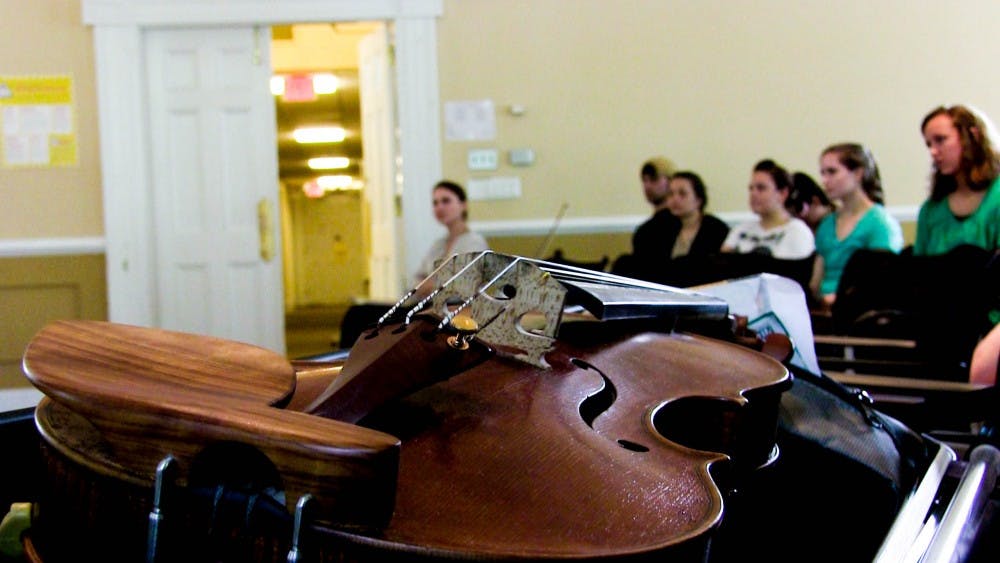More information on the Richard Luby Violin Symposium and the event schedule are available on the UNC-Chapel Hill Department of Music’s website.
When talented, passionate people gather together, whether they be tennis players, biologists, or musicians, competition often ensues along with a pressure to perform perfectly or present their best.
Dr. Richard Luby, an accomplished musician and master teacher at UNC-Chapel Hill, dreamed to create something different—an environment in which musicians might work and grow together. He realized that dream in creating the Richard Luby Violin Symposium, which is still going strong as it approaches its 10th anniversary.
The symposium admits 20 students each summer for a week of intensive master classes, lessons, and performances. One of the main goals of the symposium is to allow students to practice the violin in the context of a community.
“The environment is such that the joy of music is the primary objective rather than some sense of perfection or some sense of self-satisfaction in high achieving,” says Assistant Professor Nicholas DiEugenio, director of the symposium.
The symposium, which will run May 22-28, is unique in that it does not teach only violin lessons. Students also attend classes on performance psychology and body-awareness techniques, such as the Feldenkrais method or the Alexander technique, that are often forgotten or not a priority item for teachers.
By reducing the emphasis on hitting the notes perfectly and placing the emphasis on creating the best performance experience possible, the Luby Violin Symposium isn’t simply teaching students to play the violin better—it’s molding them into better musicians, DiEugenio notes.
Everyone benefits from the communal nature of the symposium, he emphasizes. While students are able to broaden their professional networks and practice under master violinists, teachers from across North America are able to observe one another teach and exchange ideas. This “cross-pollination” of ideas allows the students to receive the best education possible, and it benefits those in the community who attend the concerts.
“The whole point of music is to reach out and touch somebody and to have a communication from heart to heart,” says DiEugenio.
When the focus on the end game is removed, students and faculty can concentrate on and fully enjoy the process. The campus and community benefit as well. The symposium features a series of student and guest artist performances that are free and open to the public.
In the three student recitals, each student will typically perform only once and attend the other recitals to observe their peers’ techniques. The 2017 Luby Guest Artists, Vivian and Donald Weilerstein, accomplished musicians from the Juilliard School and the New England Conservatory, worked with Luby in the 1970s.
DiEugenio says that having the Weilersteins as the guest artists for the symposium’s 10th anniversary adds a special note because no other guest artists could be more perfect to honor Dr. Luby and the vision that he had in creating the symposium. The Weilersteins will perform at 7:30 p.m. May 24 in the Moeser Auditorium in Hill Hall.





